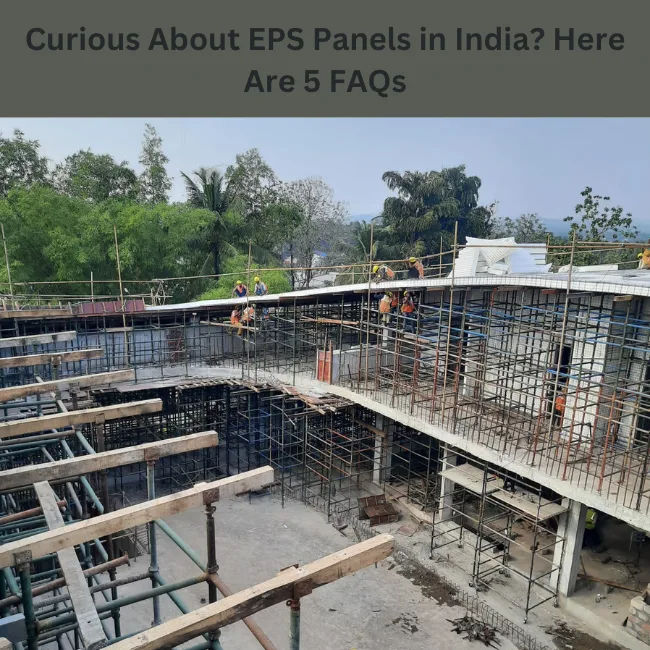In the realm of construction and insulation, EPS panels have emerged as a popular choice for their versatility, efficiency, and cost-effectiveness. EPS, or Expanded Polystyrene, panels offer a range of benefits that make them attractive for various applications, from residential buildings to commercial structures. If you’re curious about EPS panels and how they can benefit your project, this article aims to provide clarity by addressing five frequently asked questions.
Table of Contents
Toggle1. What Are EPS Panels?
EPS panels are building materials made from expanded polystyrene foam, a lightweight and rigid plastic foam containing 95% air and 5% polystyrene. This composition gives EPS panels excellent insulating properties while remaining lightweight and easy to handle. These panels typically come in various sizes and thicknesses to suit different construction needs.
2. How Are EPS Panels Made?
The manufacturing process of EPS panels begins with the creation of polystyrene beads. These beads are expanded using steam, which causes them to expand and fuse together, forming a closed-cell structure. The expanded polystyrene blocks are then cut into panels of various sizes using hot wires or saws. Finally, the panels may undergo additional processing, such as laminating with other materials or adding fire retardants for enhanced safety.
3. What Are the Benefits of Using EPS Panels?
Excellent Insulation: EPS panels offer high thermal insulation properties, helping to regulate indoor temperatures and reduce heating and cooling costs.
Lightweight and Easy to Install: Due to their lightweight nature, EPS panels are easy to transport, handle, and install, reducing labor costs and construction time.
Moisture Resistance: EPS panels are resistant to moisture, making them suitable for use in humid environments such as basements or bathrooms.
Versatility: EPS panels can be used in various applications, including walls, roofs, floors, and even as decorative elements.
Cost-Effective: Compared to other insulation materials, EPS panels are relatively affordable, offering a cost-effective solution for both residential and commercial projects.
4. What Are Some Common Applications of EPS Panels in India?
EPS panels find applications in a wide range of construction projects, including:
Wall Insulation: EPS panels in India are commonly used to insulate exterior walls, providing thermal efficiency and reducing energy consumption.
Roof Insulation: EPS panels can be installed as insulation under roofing materials, helping to maintain comfortable indoor temperatures and prevent heat loss.
Floor Insulation: In flooring systems, EPS panels can serve as insulation to improve energy efficiency and provide acoustic benefits.
Structural Insulated Panels (SIPs): EPS panels are often used as the core material in SIPs, which are prefabricated building components used for walls, floors, and roofs.
Facade Systems: EPS panels can be integrated into facade systems to enhance the aesthetic appeal of buildings while providing insulation and weather protection.
5. Are EPS Panels Environmentally Friendly?
While EPS panels offer several environmental benefits, such as energy efficiency and recyclability, their production process involves the use of petroleum-based materials, which raises concerns about their environmental impact. However, EPS panels are fully recyclable, and many manufacturers offer recycling programs to collect and reuse EPS waste. Additionally, EPS panel construction contributes to energy savings over the lifespan of a building, helping to reduce greenhouse gas emissions associated with heating and cooling.
In conclusion, EPS panels represent a versatile and cost-effective solution for insulation and construction needs. With their excellent thermal insulation properties, ease of installation, and versatility, EPS panels continue to gain popularity in various construction projects. While considerations regarding their environmental impact exist, ongoing efforts in recycling and sustainability aim to mitigate these concerns. Whether you’re building a new home, renovating an existing structure, or undertaking a commercial project, EPS panels offer a compelling option worth exploring.
Also, read
Considering EPS Panels? 7 Factors You Should Take Into Account



